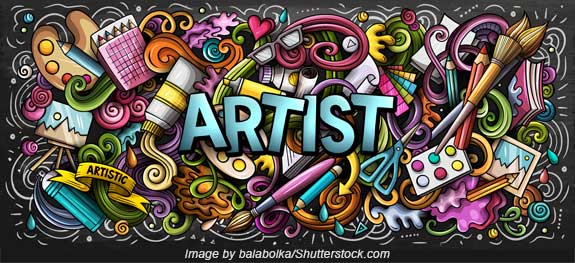“Every blade of grass has its Angel that bends over it and whispers, ‘Grow, grow.’”
– The Talmud
Prevailing wisdom tells us that artists are born, not made. If you happened to win the genetic lottery and scored all those creativity chromosomes, you had the potential to become a great director, actor, painter, photographer, musician, writer, and such. Otherwise, you might as well get used to living an ordinary life. Right?
WRONG!
There’s an artist in all of us waiting for the opportunity to find expression. Our mission – should we decide to accept it – is to give that artist the time, energy, attention, and encouragement to flourish. Julia Cameron just might be the person to help us do that.
Julia is an award-winning poet, playwright, filmmaker, composer, and author who has written thirty books. Most noteworthy among her writings is The Artist’s Way, a collection of essays, inspirational quotes, and tools to help readers nurture their creative gifts.
According to Julia, the starting point for creative recovery entails commitment to three foundational practices:
- Morning Pages, or three pages on standard sheets of paper written out long hand immediately upon awakening. These are streams-of-consciousness designed to empty out whatever’s in the brain. They’re written as fast as the hand can move across the page without thought or editing. In my practice, I find that they help me release stuff on which I’ve been ruminating as well as get me to pay attention to topics and issues that seem to crop up repeatedly.
- A Daily Walk to help the brain experience a bounty of sensory experience and allow time to fill up on creative thoughts and impulses. Ideally, one takes a particularly long walk weekly in an extra special place.
- A Weekly Artist Date to spend time with, and nurture, the artist within us. These dates do not have to be lavish or spendy, but they do need to be pursued without companionship. Just you and your artist!
The book proceeds with a 12-week process designed to kick-start each reader’s creative recovery. While there’s no substitute for reading the book and going through your own process, here are a few “a ha” moments that I had while taking this journey:
- You cannot become a good artist unless you are willing to start out as a bad one. Give yourself time to take baby steps; support yourself emotionally along the way. Negative self-talk is the artist’s enemy.
- Don’t let blocked artists and/or crazymakers disrupt the artist journey. Create a safe space and protect your budding artist from shame.
- Take seriously the fact that the Universe has your back. Be willing to take the leap of faith and trust that it will be there for you.
- In order to have self-expression, you must have a self to express. Morning pages introduce you to the “real you” versus the one put out for public display.
- Be generous with downtime; the artist needs time to recharge. Say “YES” to yourself.
- Serious art comes out of serious play.
- Art is not about thinking something up; it’s about getting something down. Show up. Take small and simple creative steps daily.
- Learn to survive your creative injuries by mourning the losses, learning from them, and moving on to the next act of creation.
- Procrastination is not laziness, it’s fear – fear of a dry well, fear of tedium, fear of failure, fear of disappointing oneself or others. Counter that impulse by making the creative process fun.
- Art needs time to incubate, to sprawl and be ungainly before settling into itself. Don’t get fixated on the finish line; enjoy the journey.
- Creativity is a spiritual practice. It brings its own rewards.
- We cannot chart our artistic process or try to control it. As author André Gide tells us: “One does not discover new lands without consenting to lose sight of the shore for a very long time.”
